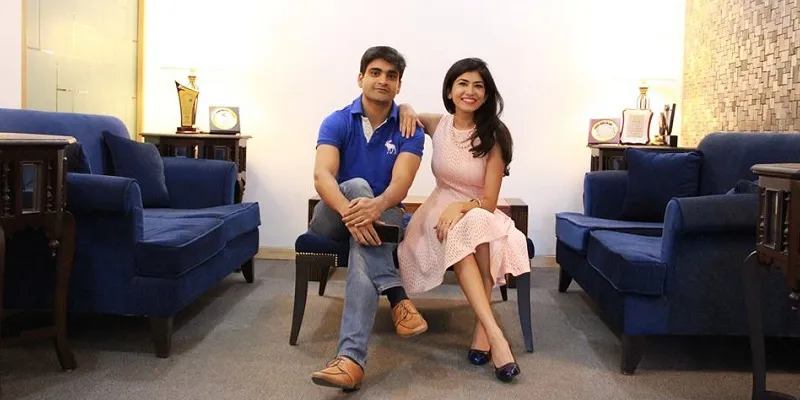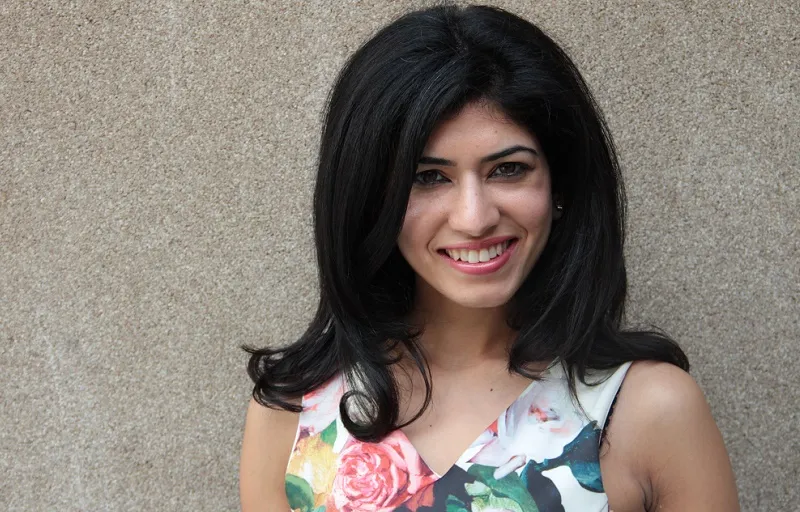Swati Bhargava says she lives by the dictum 'Karm karo, phal ki chinta mat karo'
This week, Swati Bhargava, the vivacious co-founder of CashKaro, was in the spotlight answering questions on startups, the cash-back business and life in general
Conversations at YourStory has been facilitating interesting live chats with leading entrepreneurs, investors, and technologists every week. We have had lively discussions with Ronnie Screwvala, Girish Mathrubootham, Anu Acharya, and Upasana Taku over the past few months. This week, Swati Bhargava, the vivacious co-founder of CashKaro, was in the spotlight answering questions on startups, the cashback business and life in general.

To start off with a brief bio of Swati Bhargava, she is a math buff and an alumna of the London School of Economics; she married her college-mate Rohan Bhargava though the Atlantic separated them for three years; started cash-back venture Pouring Pounds with him in the UK after which the couple moved to India to start another successful business, CashKaro.
Today CashKaro.com is a leading player in the Indian deals market and is the only venture capital-backed cashback site. CashKaro has raised $4 million in Series A funding led by Kalaari Capital. An acclaimed social media influencer, Swati chatted with YourStory readers on a bunch of topics, which is encapsulated below.
The tricks of the trade of the cashback model
CashKaro has evolved from just offering cash-back and coupons, as they have moved into price comparison as well, which makes them a great overall savings destination. The site also offers savings on offline retailers as well.
The success of cash-back sites globally was the first reason which pushed Swati and Rohan towards the cash-back model. Ebates in the US is a billion-dollar business, so is Fanli.com in China. So, the fact that cash-back has survived and grown so well abroad gave Swati and Rohan a lot of confidence.
Swati says,
When I was working at Goldman Sachs in London, I never thought we'd move back. But after we started Pouring Pounds, we knew that we've got to bring cash-back to India — people would just love the concept here!
The business model of the cash-back game in a nutshell is that every time you shop at a retailer through CashKaro, the retailer pays them commission, most of which is shared back with the customer and the rest is their profit.
The Goods and Services Tax (GST) doesn’t directly impact cash-back sites and even the indirect impact is negligible. CashKaro charges 18 percent tax on commission invoices sent to retailers compared to the 15 percent they used to charge earlier.
Swati, the entrepreneur
The most fulfilling part of Swati’s entrepreneurial journey:
The feeling of BUILDING and CREATION — I find that very fulfilling. We started CashKaro from scratch. The fact that your idea became a company and now there are 80 more people in our team helping us achieve our dream. Also, the freedom which you have as an entrepreneur (though it comes with a lot of responsibility) is amazing.
Swati loves the ENERGY of entrepreneurs in the startup industry. No matter what the market throws at them, people in this industry seem to simply bounce back! This "never back down" attitude is exceptional to say the least. Swati feels it makes for an environment that is conducive to both growth and experimentation.

Mistakes are a part and parcel of any entrepreneur’s life. Swati’s style of dealing with mistakes is simple:
I start with admitting the mistakes — first to myself, then to Rohan and then to others depending on who it impacts. Then rather than spending too much time thinking about it, I get on to what’s next — how do we fix this, what are the next steps?
While there is no secret formula to success, Swati believes that it is essential to surround oneself with people who are both passionate and proficient at what they do.
She is guided by the line from the Bhagavad Gita in whatever she does, “Karm karo, phal ki chinta mat karo!”
She agrees that funding is a major milestone in a startup journey:
The branding and press coverage that comes with investment money definitely helps. Consumers, media, other stakeholders — everyone starts noticing a brand more when it is funded. The money itself is the most important part though. To scale quickly and implement ideas which are good but may need time to show results, a startup needs investment.
Swati’s tips for an amazing work-life balance
Swati follows a few productivity hacks:
1. Making a list. I think it’s a simple but effective way of ensuring nothing gets missed. More importantly, I transfer the stress of remembering on to that sheet of paper that I have written on. 2. Exercise and meditation 3. Prior planning.
The advice she would give her younger self:
Don’t take health for granted. I've adopted a healthier lifestyle now compared to what I used to do in college and it feels so good.
Swati wakes up at 6am every day and that enables her to take out time for her morning walk, yoga and pranayama. Work-life balance isn't easy, but she feels one can make a very conscious decision to make it happen.
When Swati is having a difficult or gloomy day, she tries to find 'mood shifters' during the day. She closes her eyes and thinks of what makes her happy. She also listens to her favourite song, orders her favourite dessert or just spends some time looking at pictures of her family. Swati says, “I also try to take out a few minutes to just be grateful for all the million things in life we take for granted.”
The name of Swati’s biography, if it were ever written, would be quite aptly ‘Smiling Through It All’!







